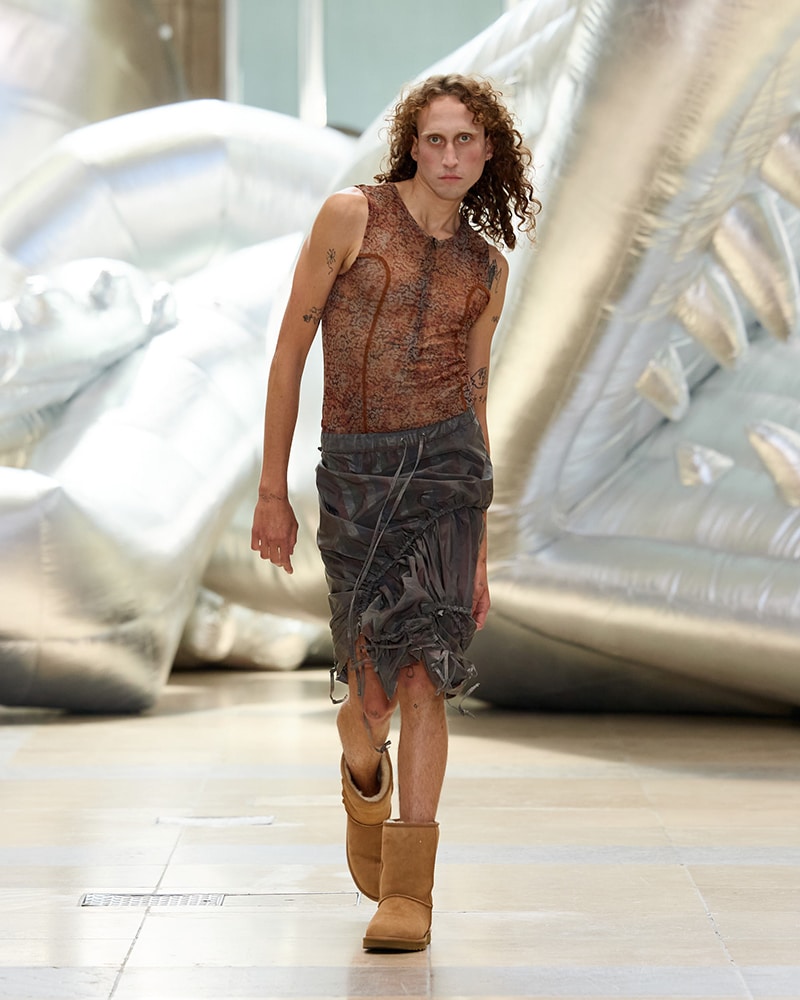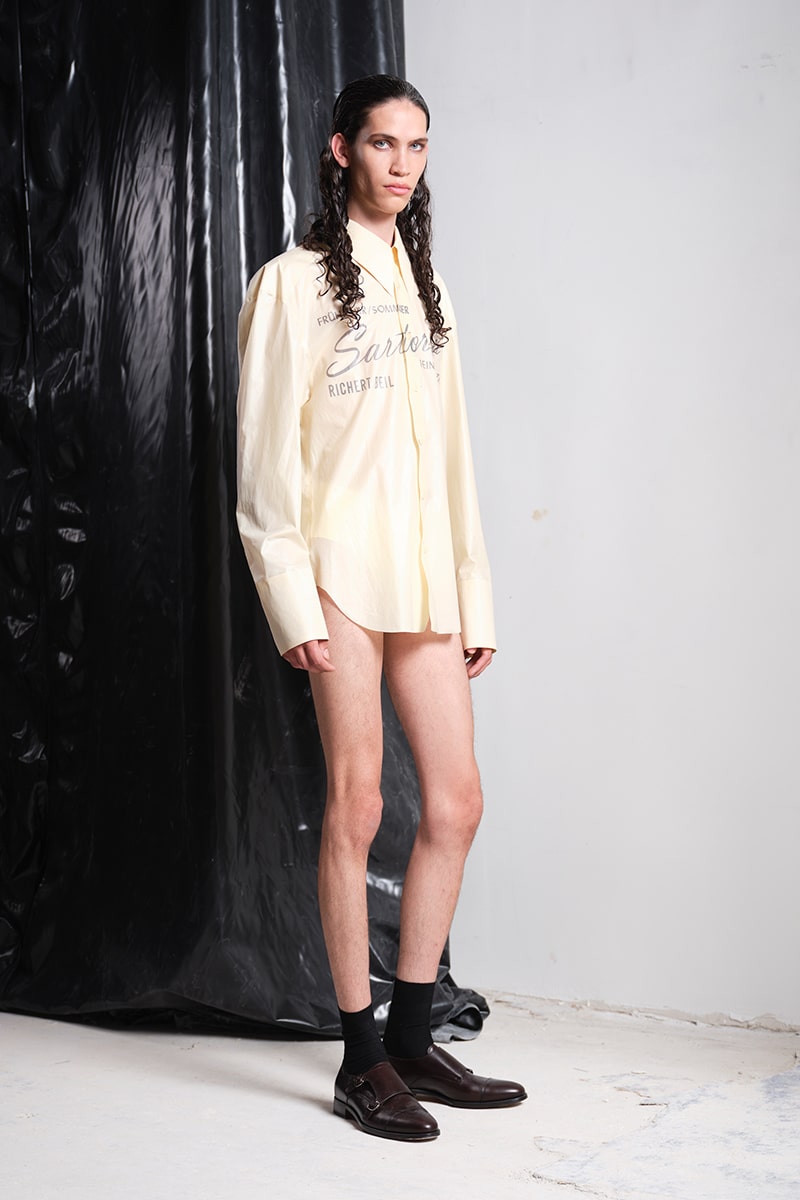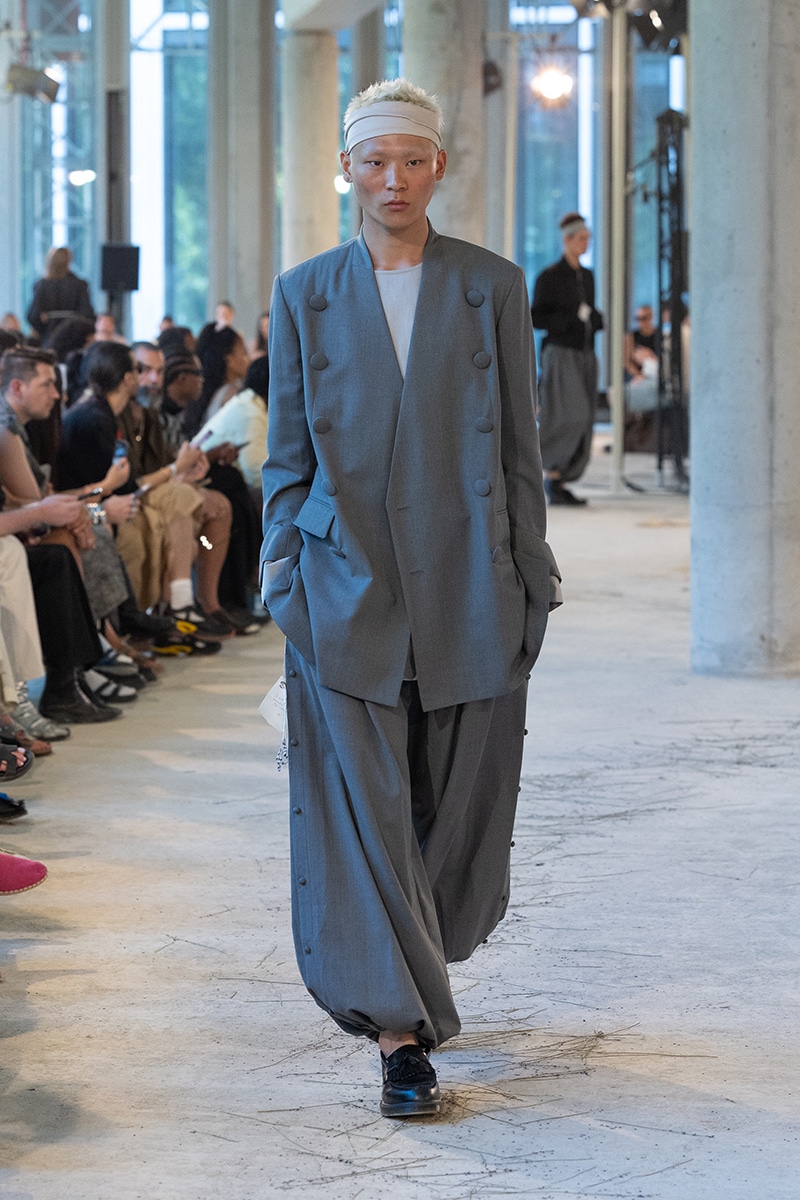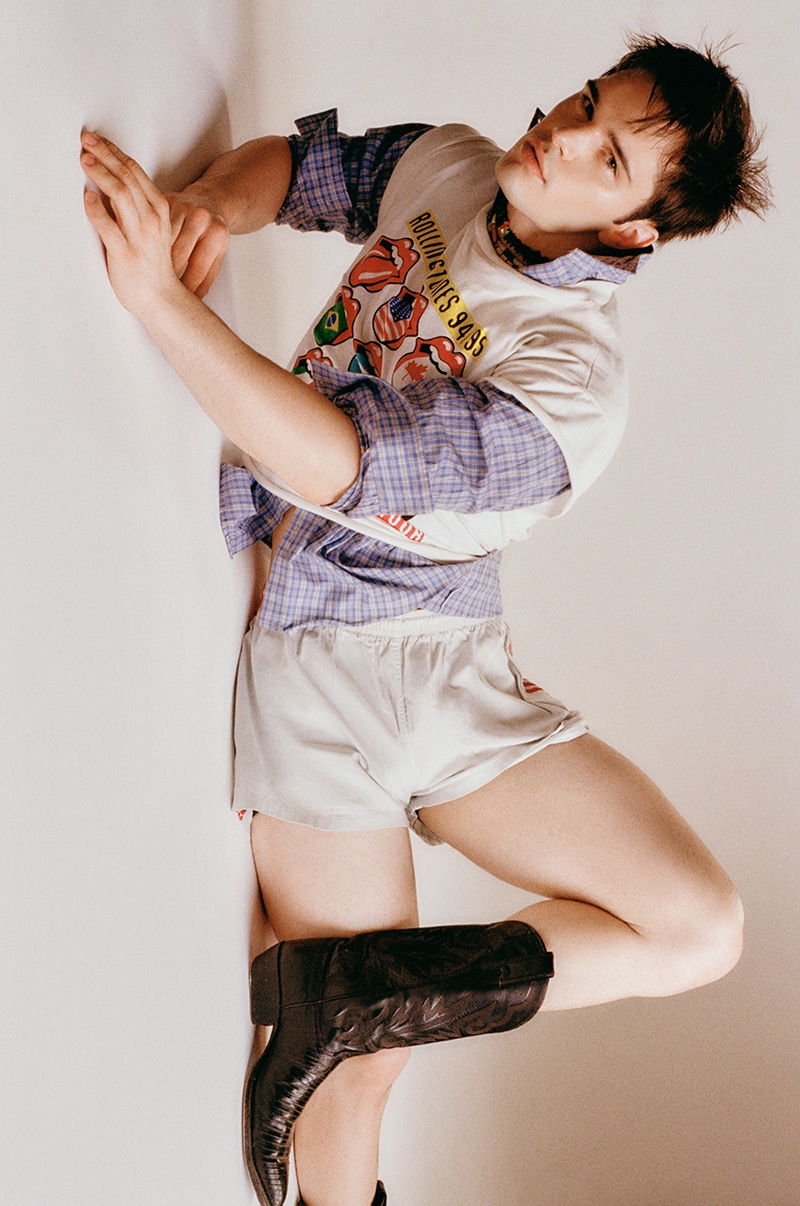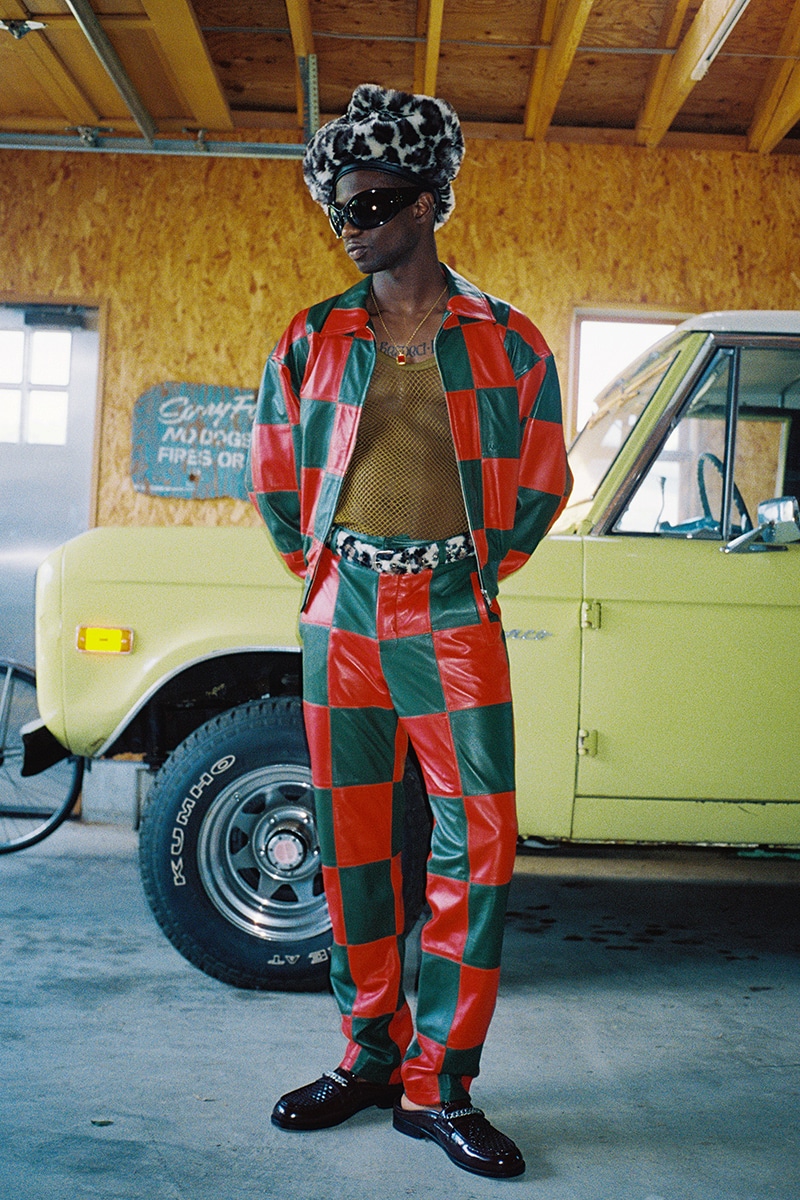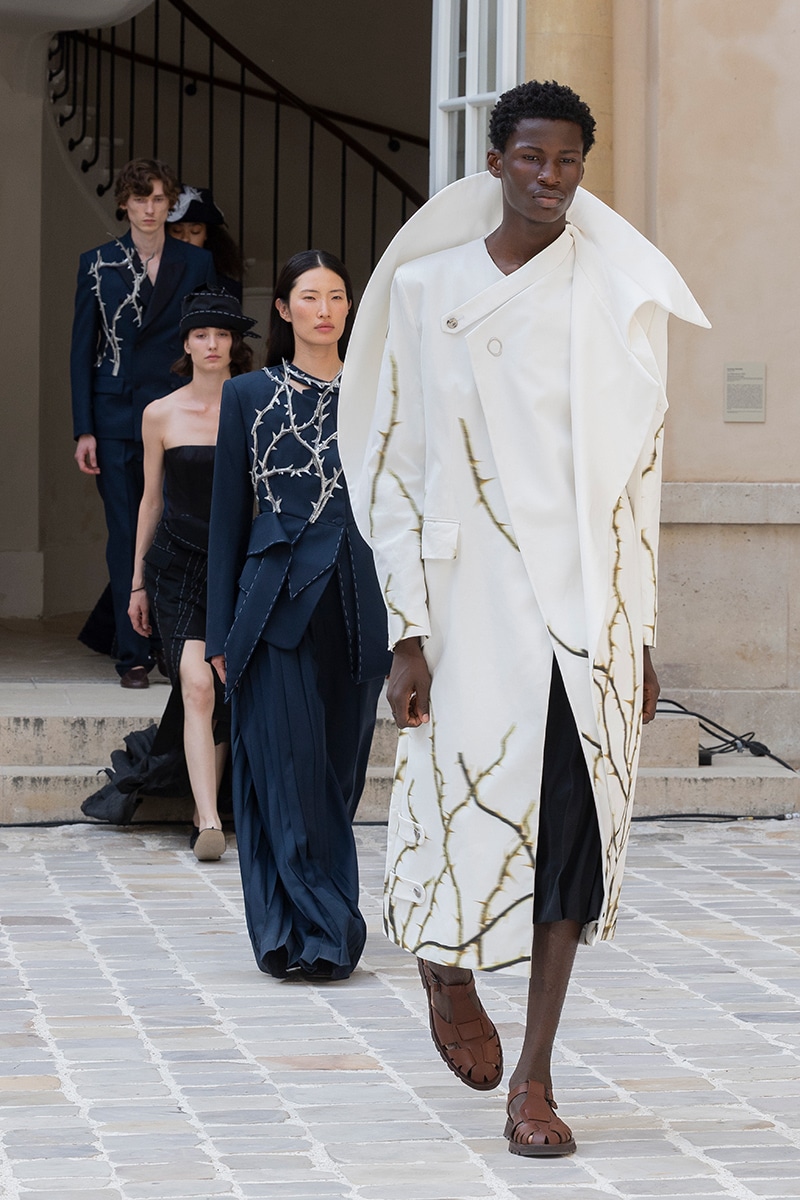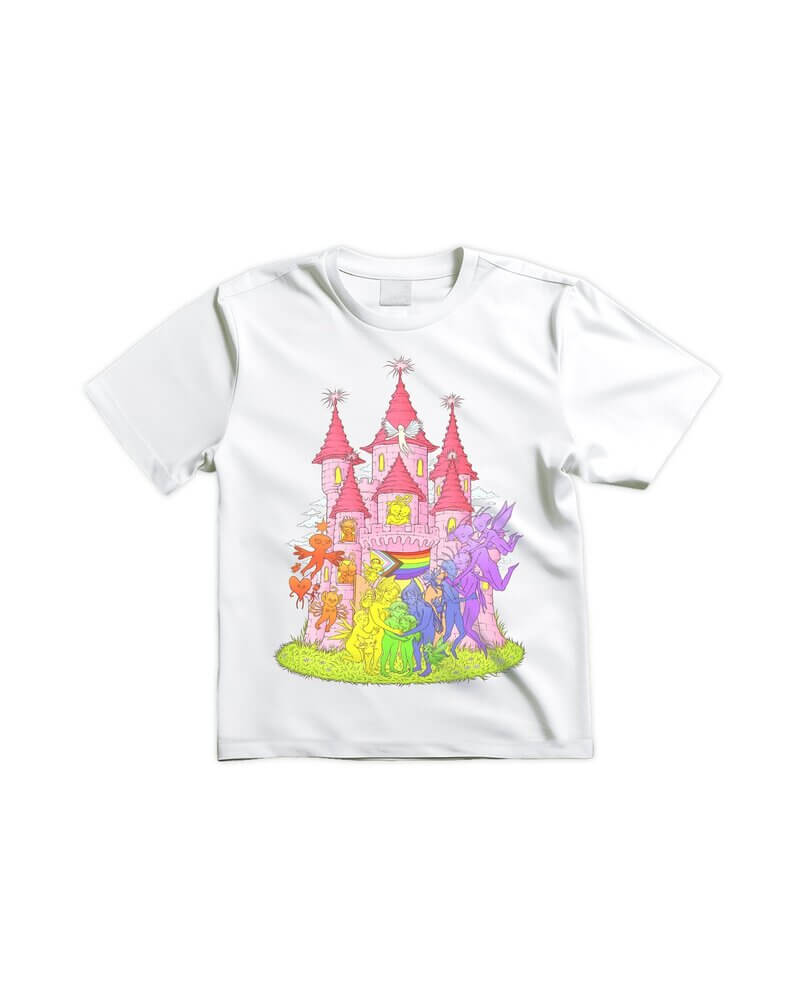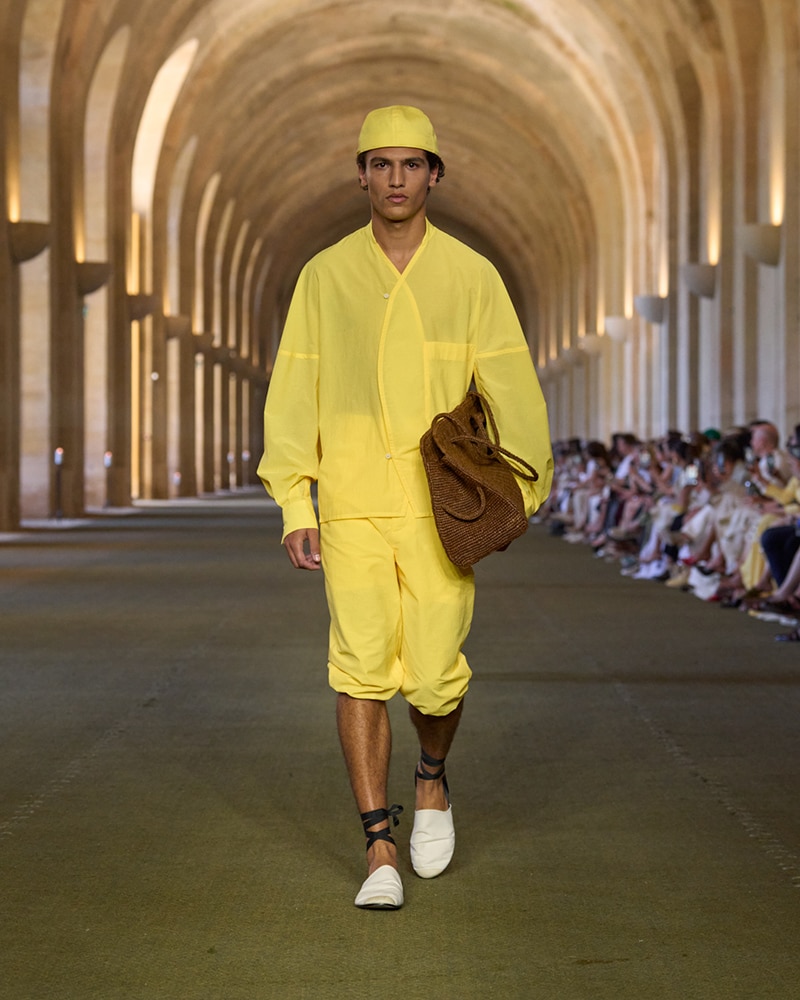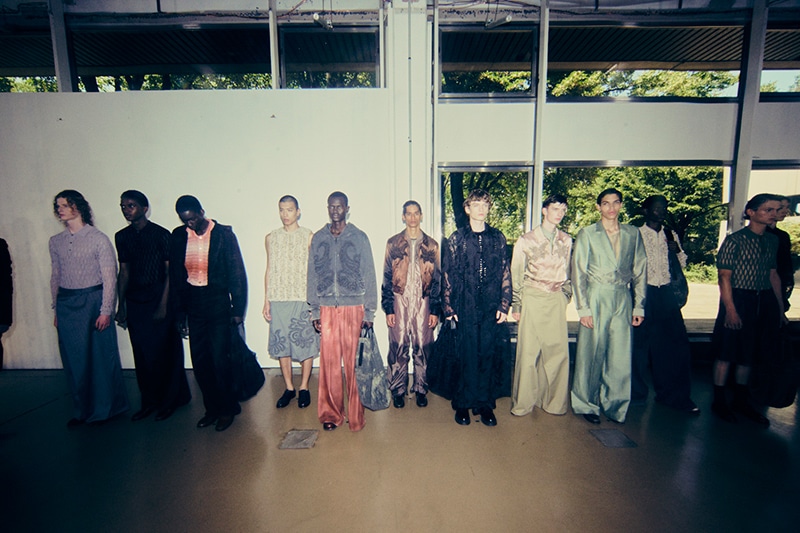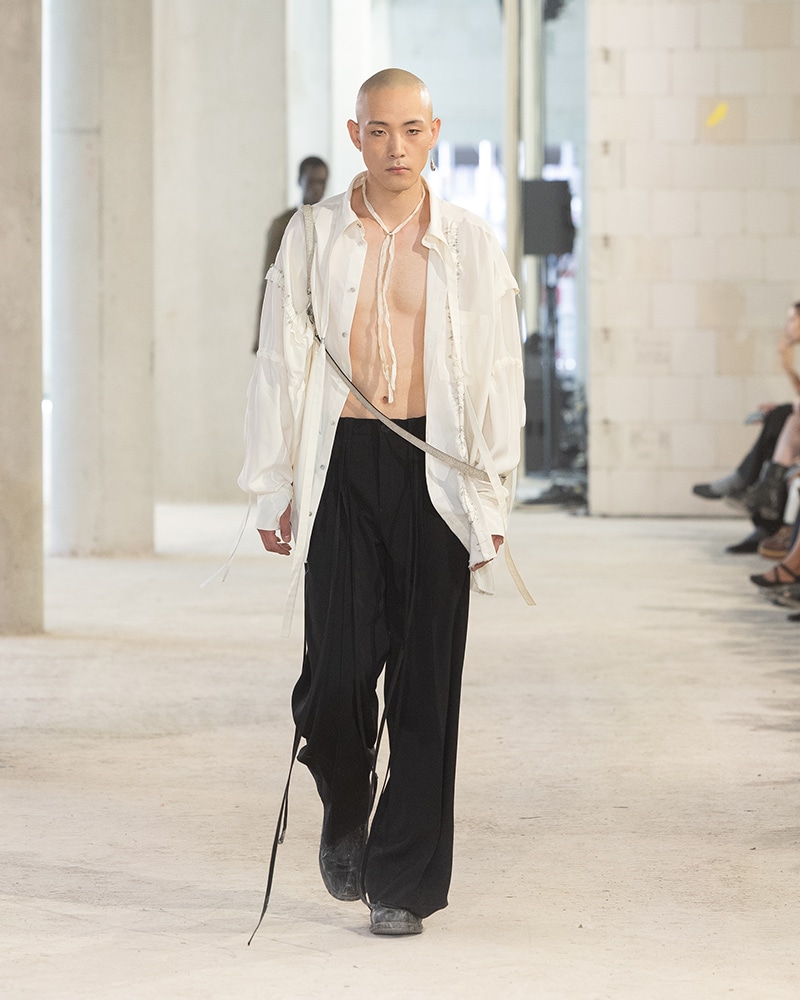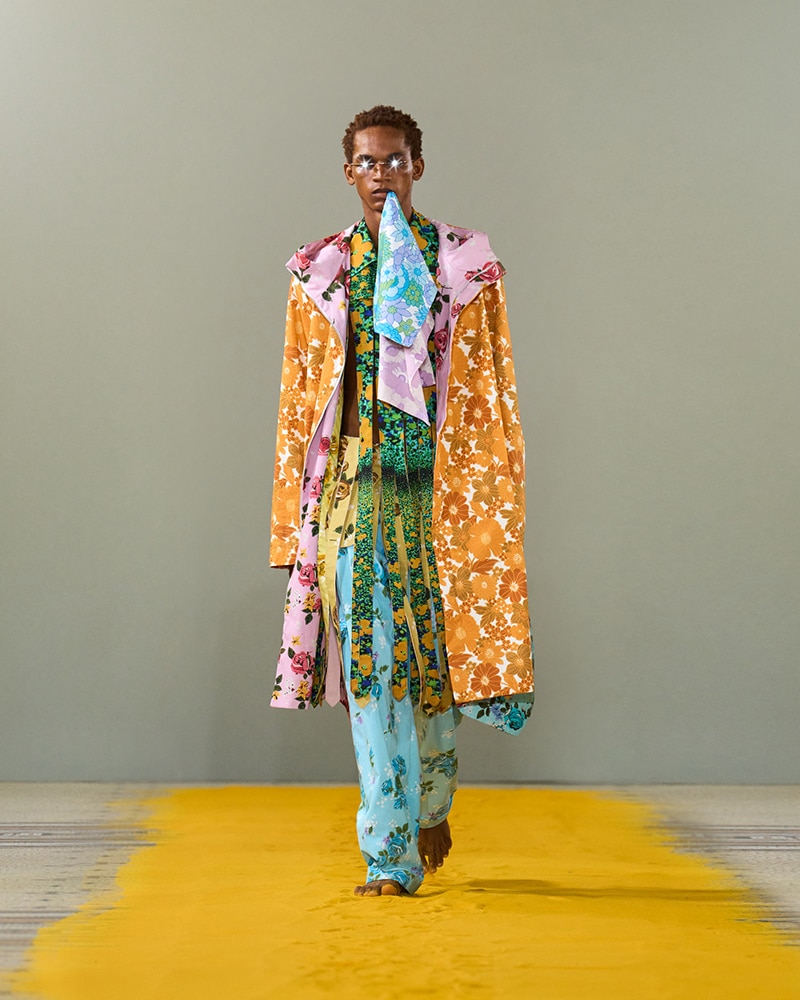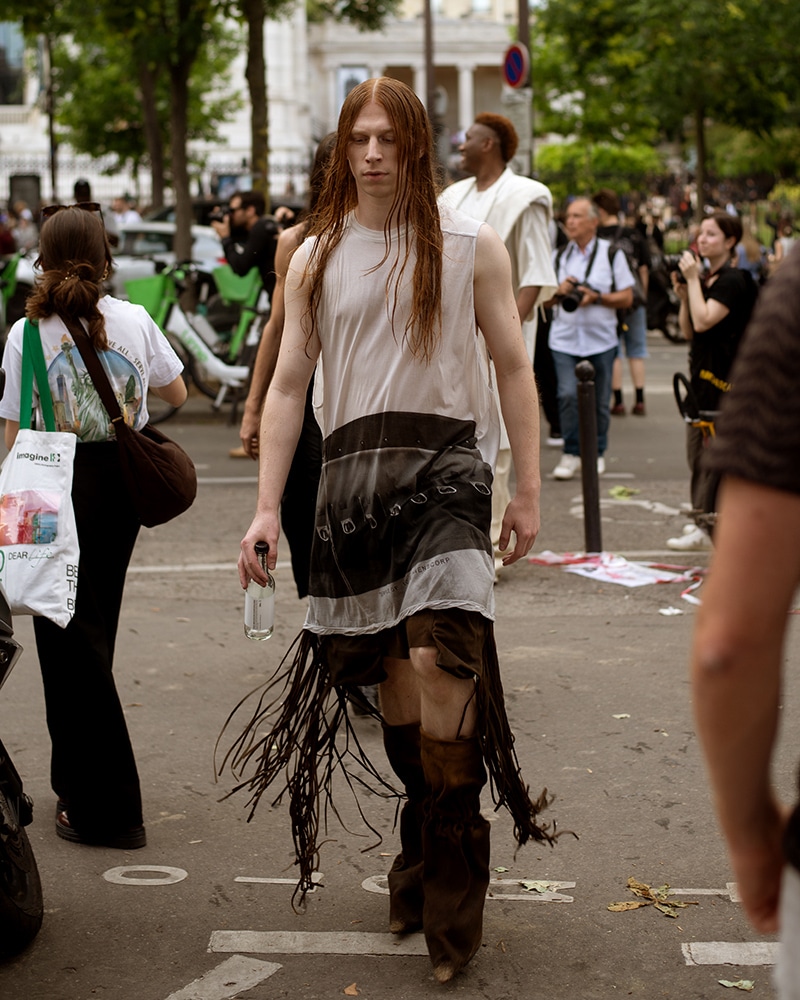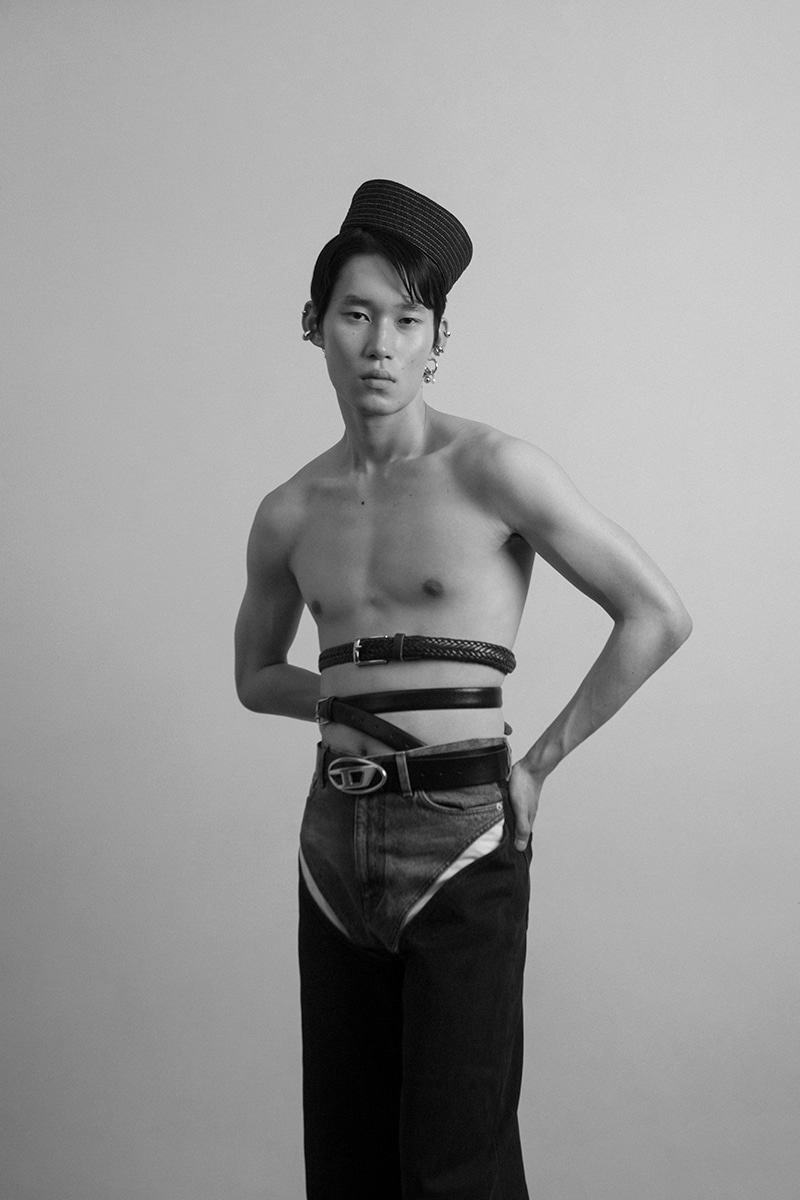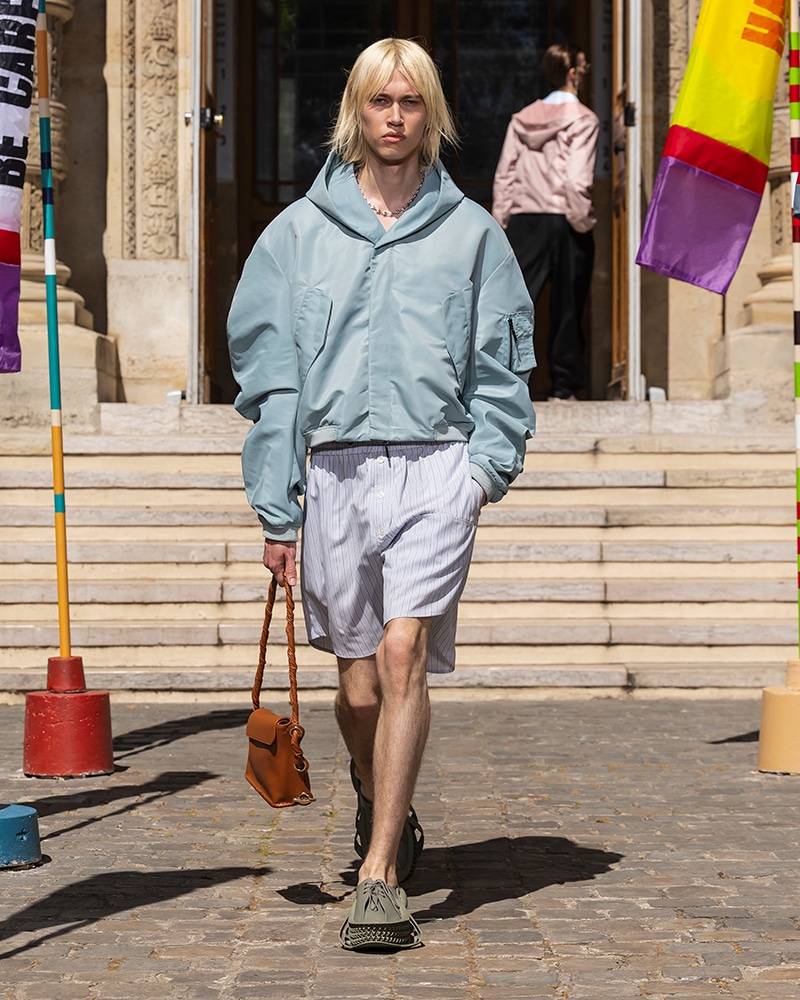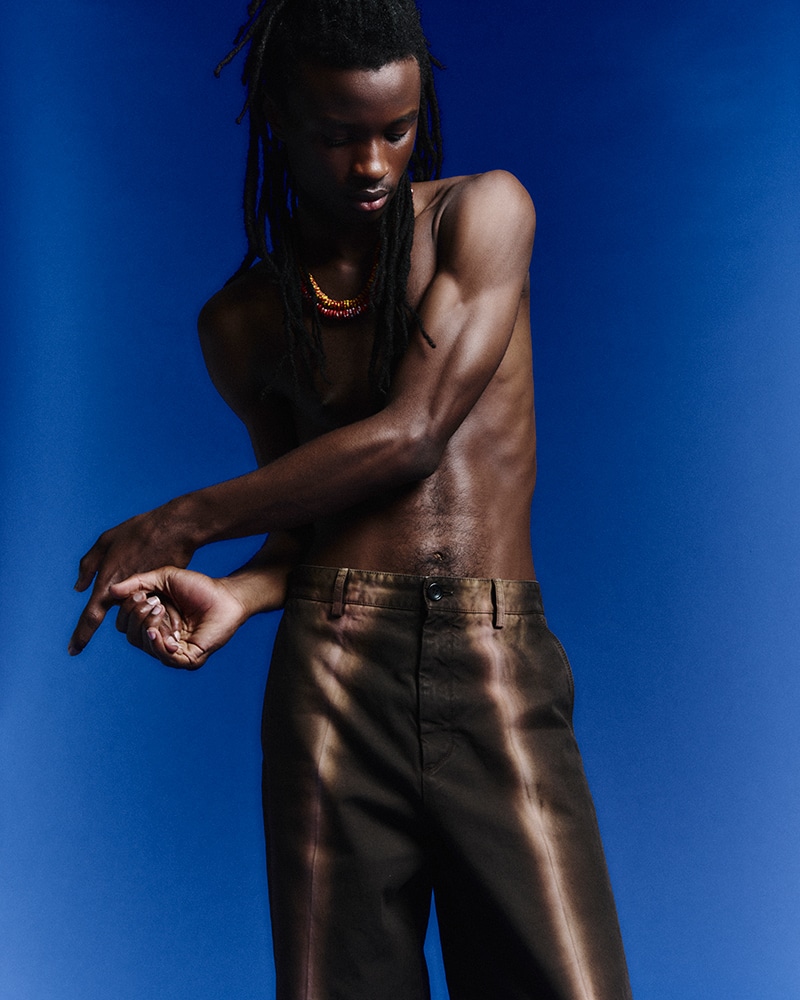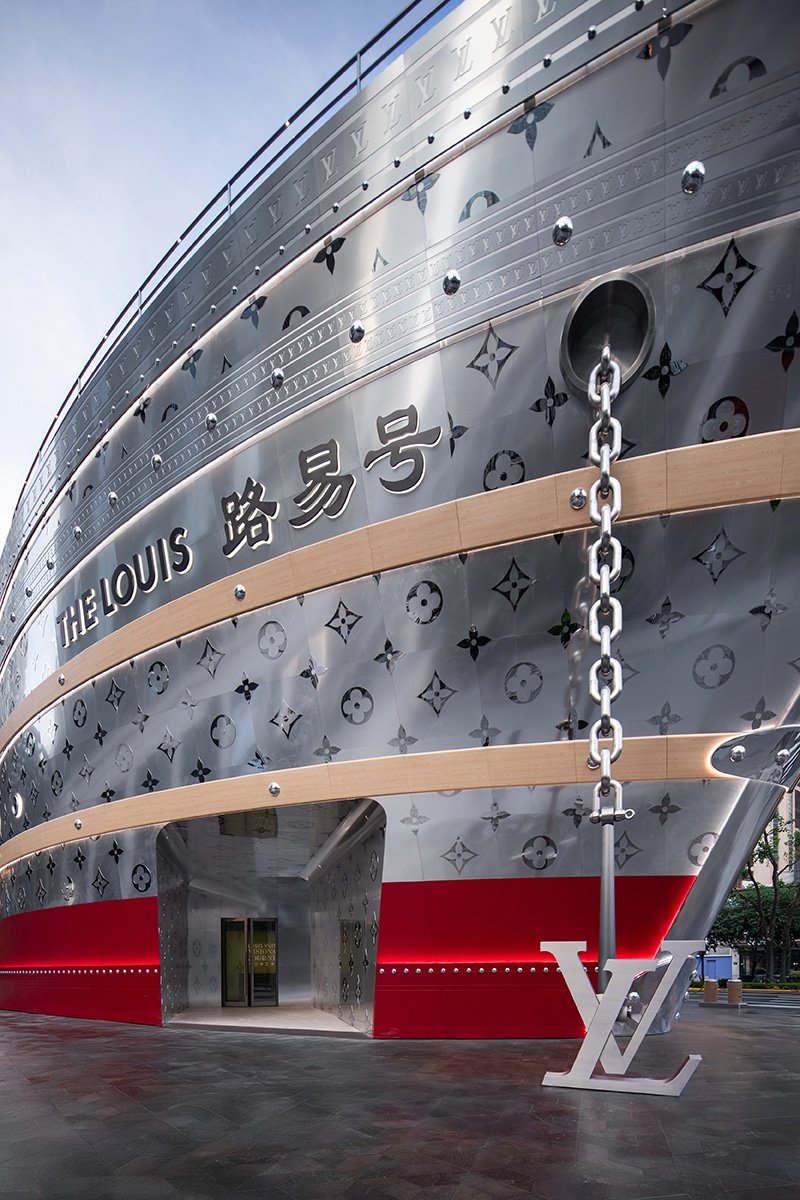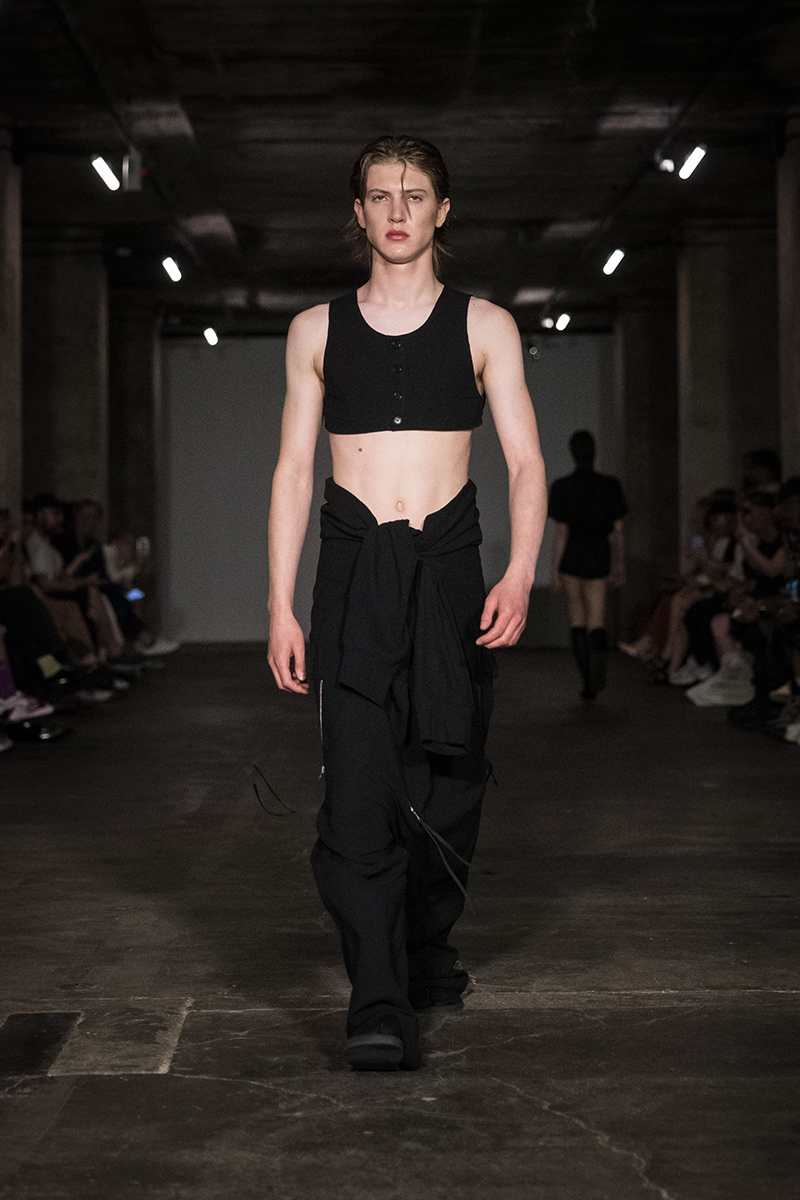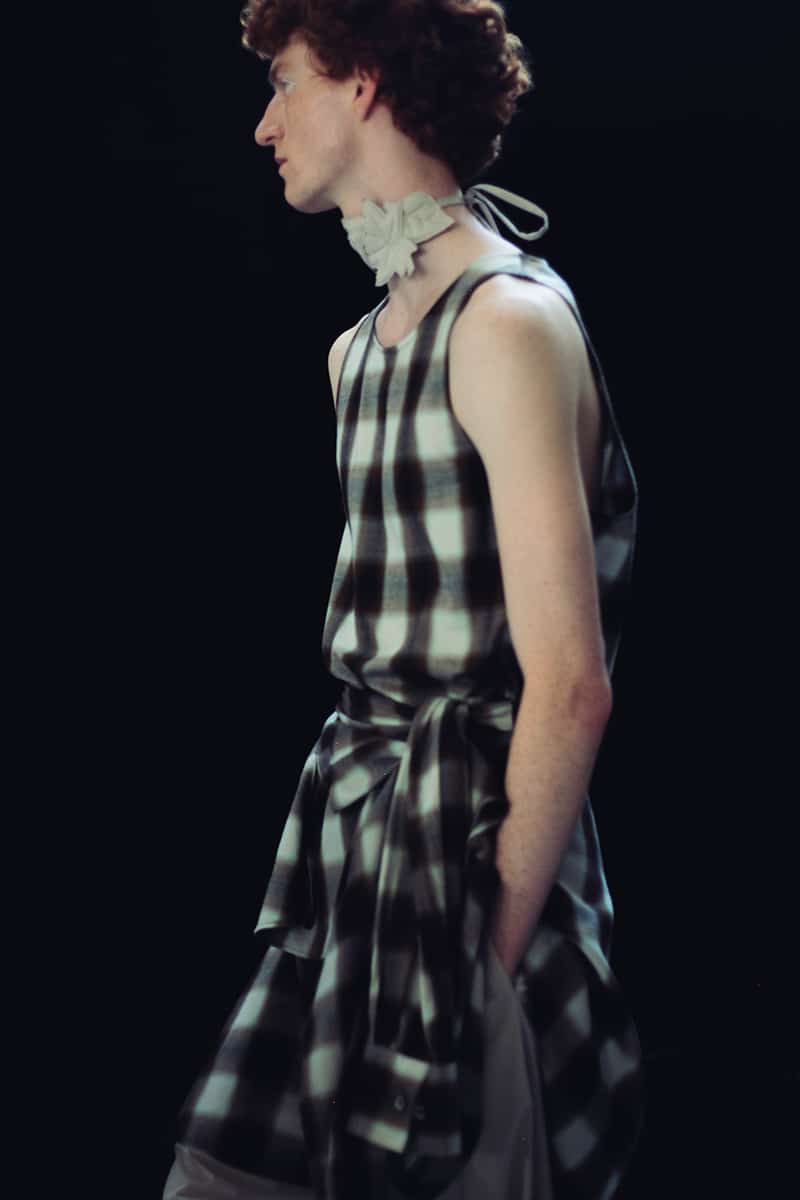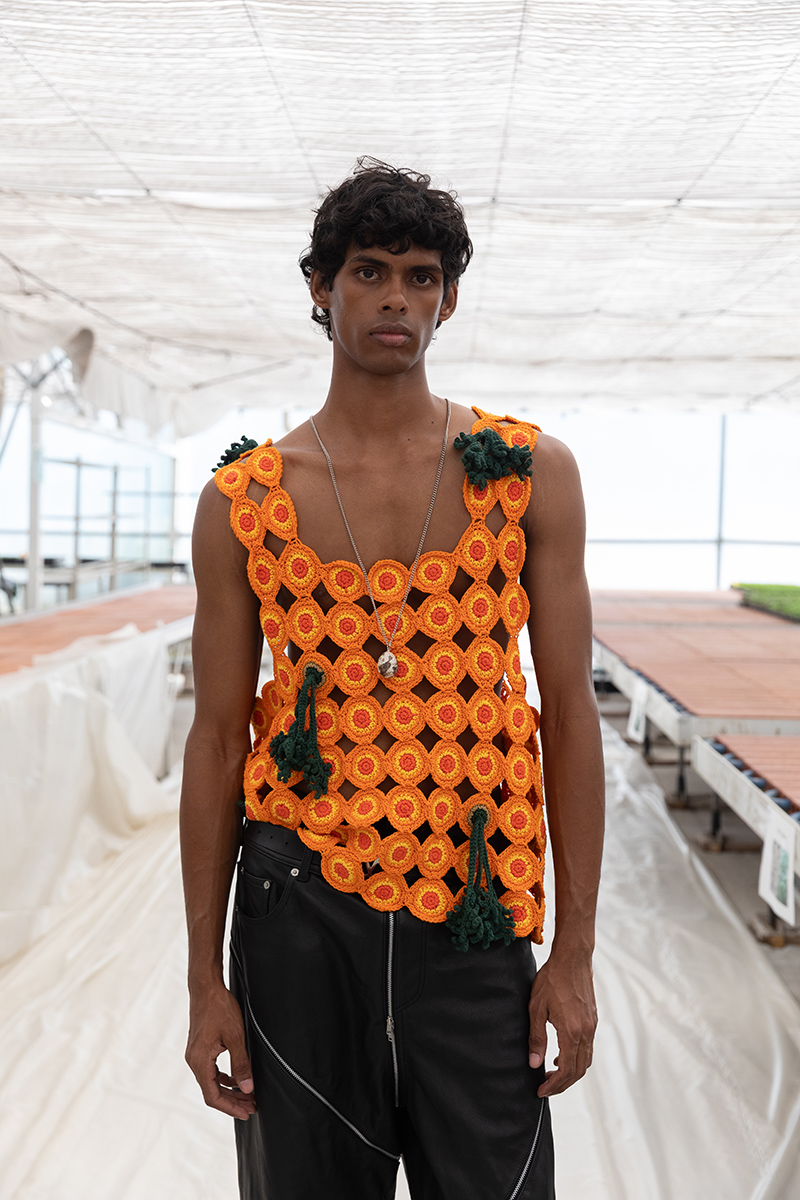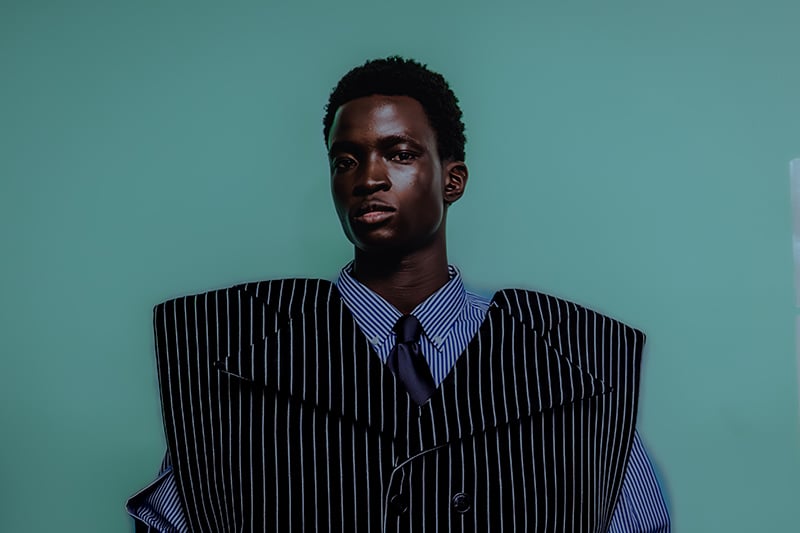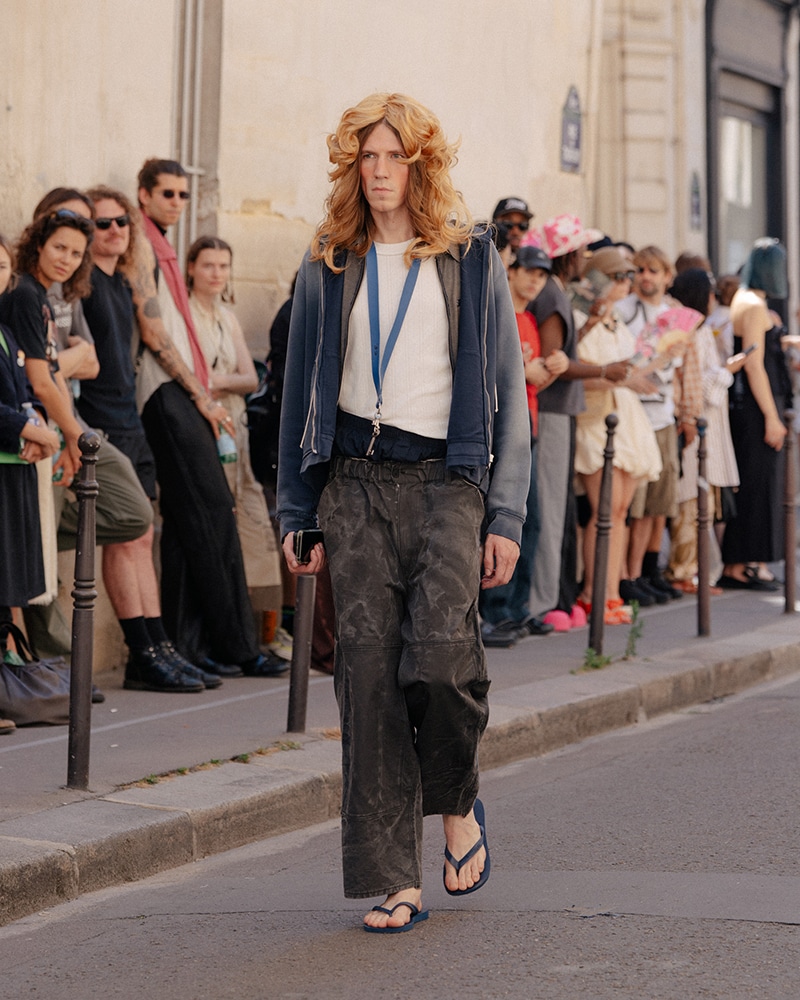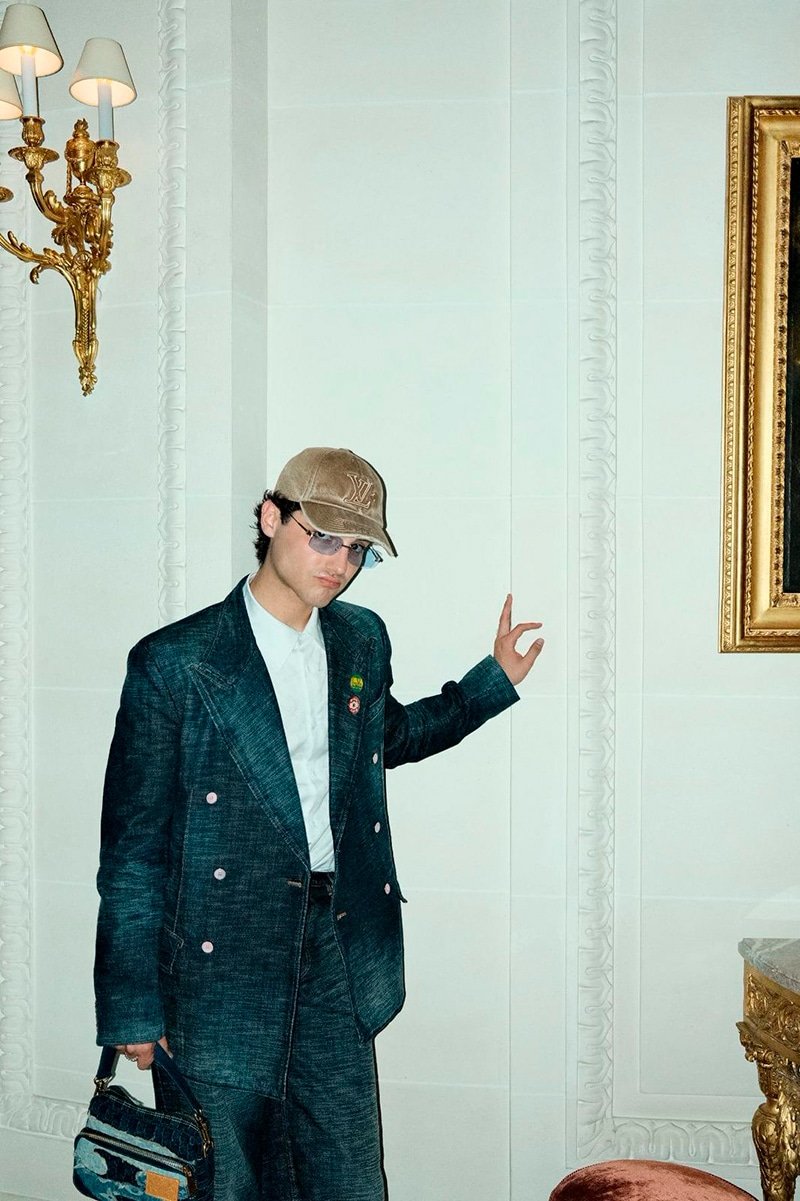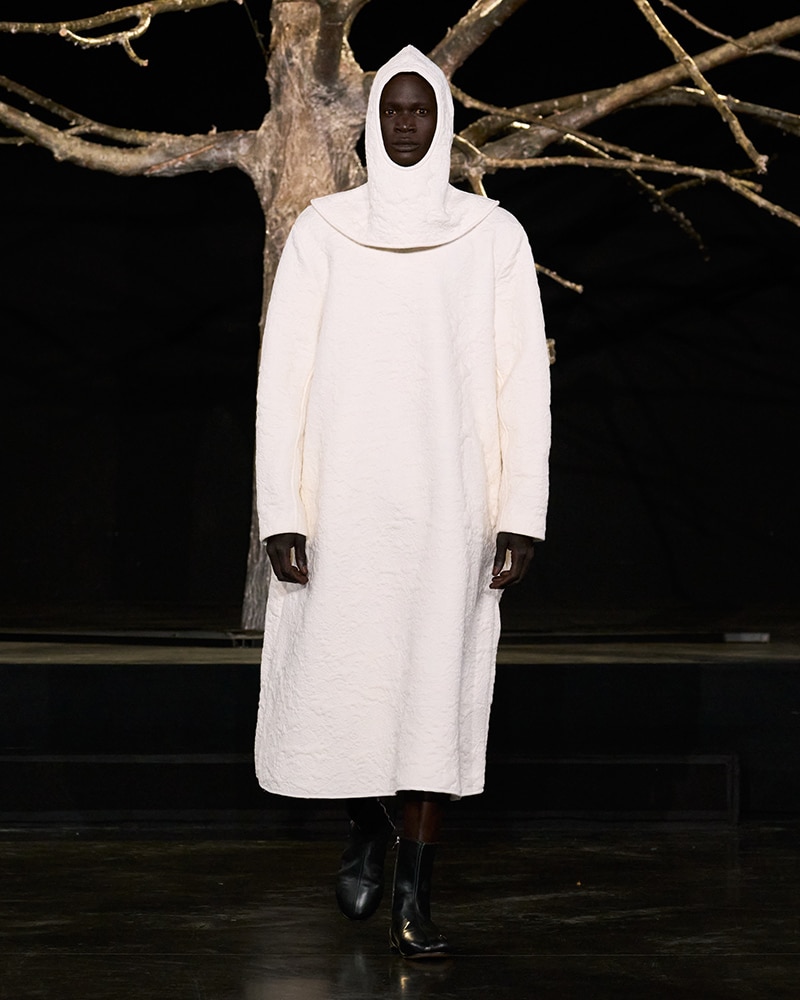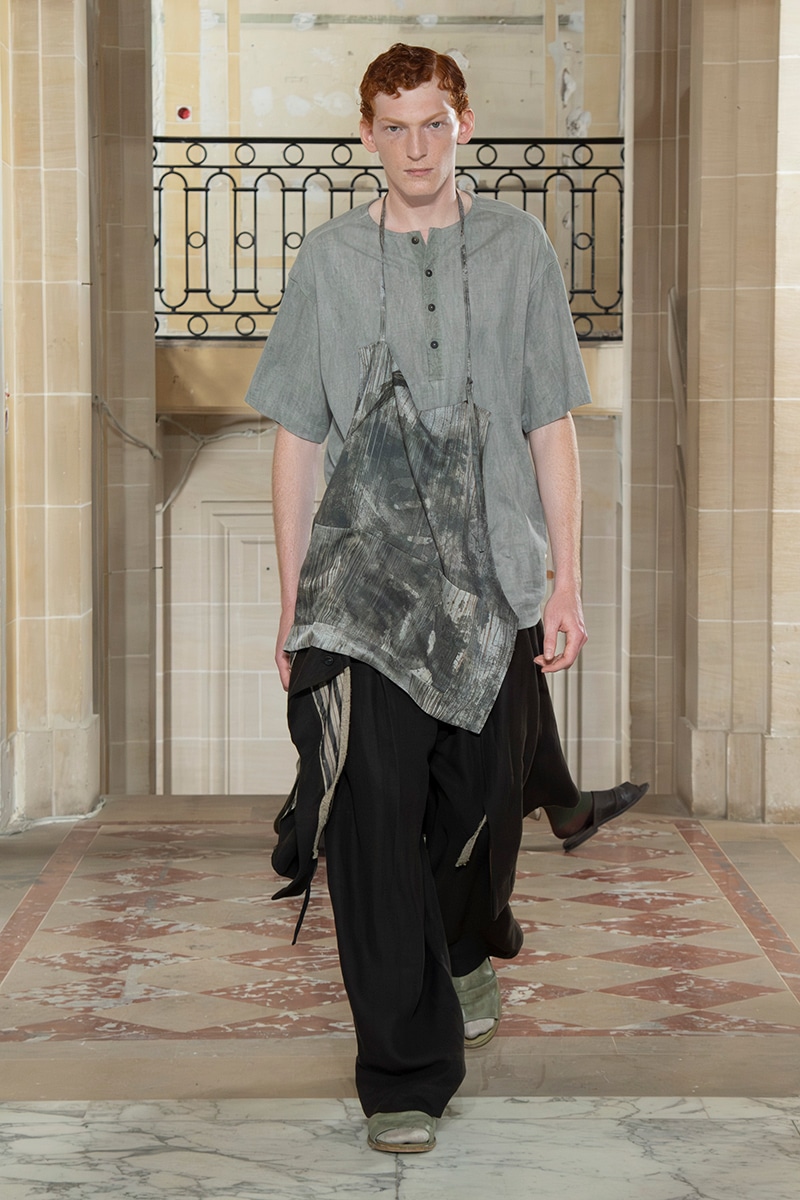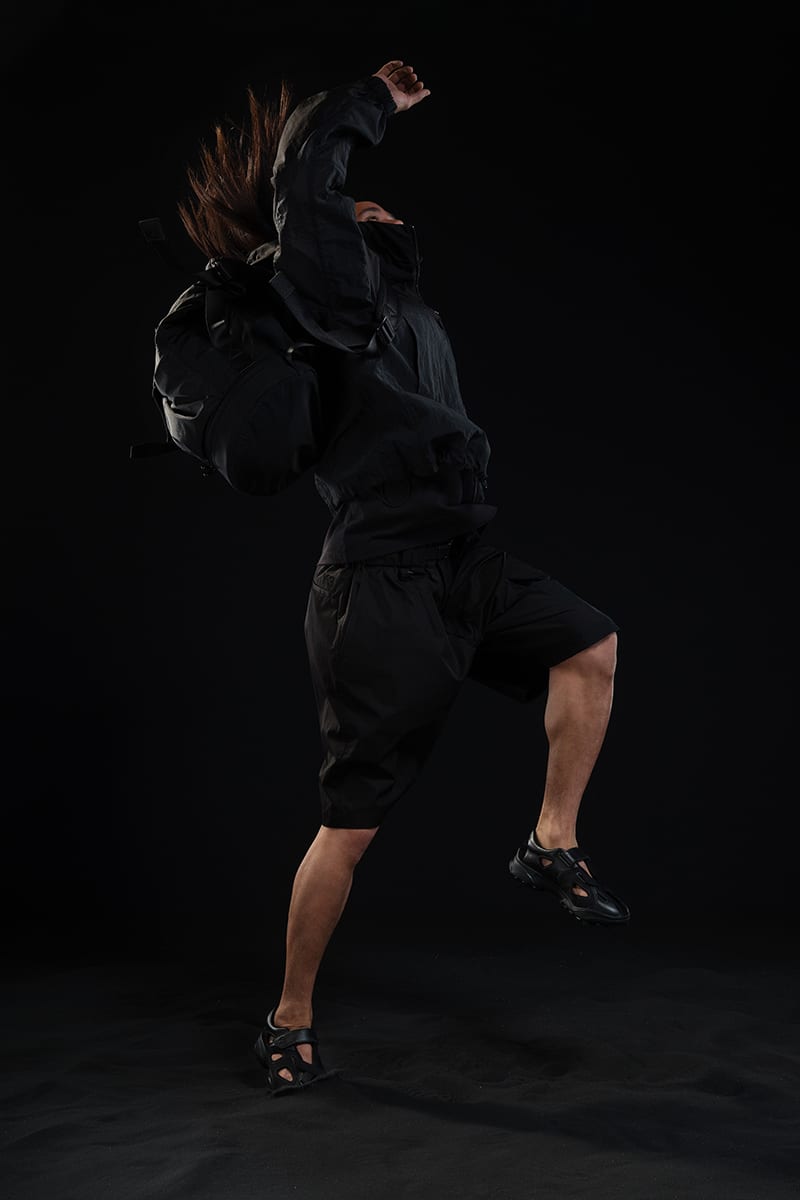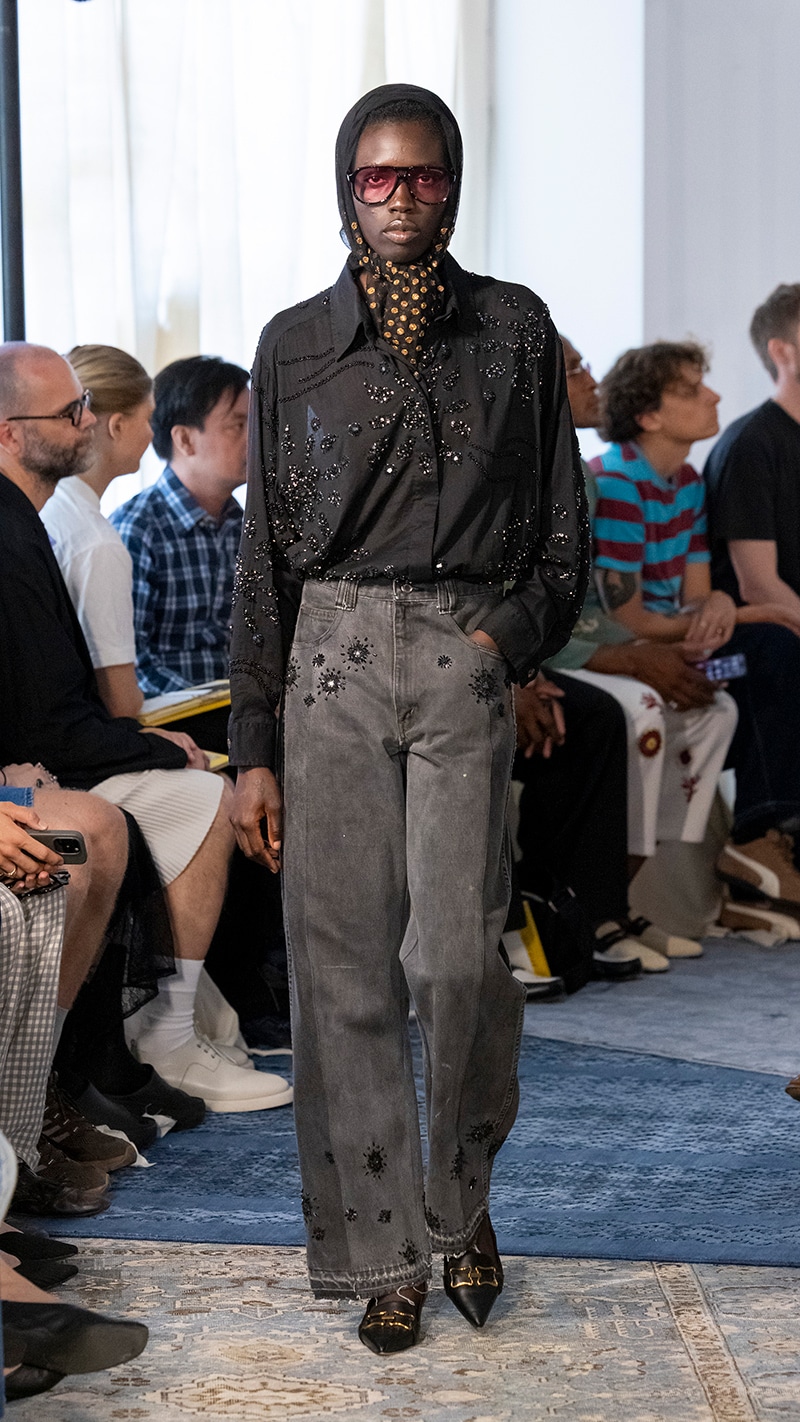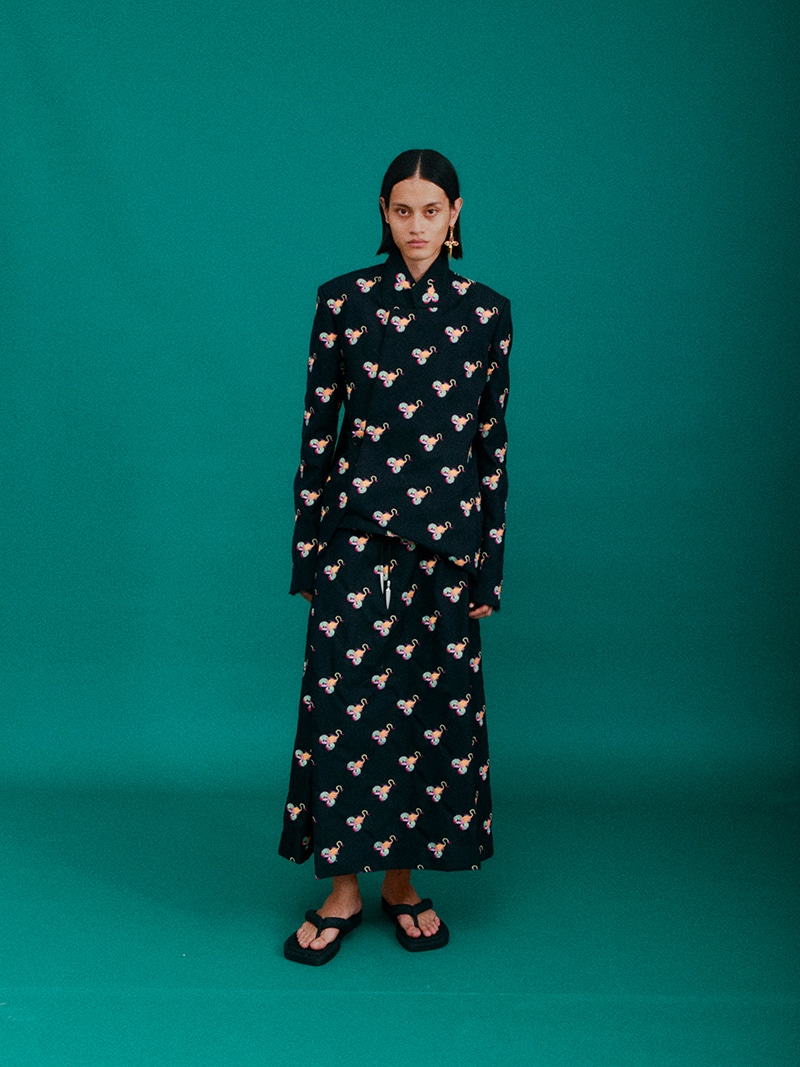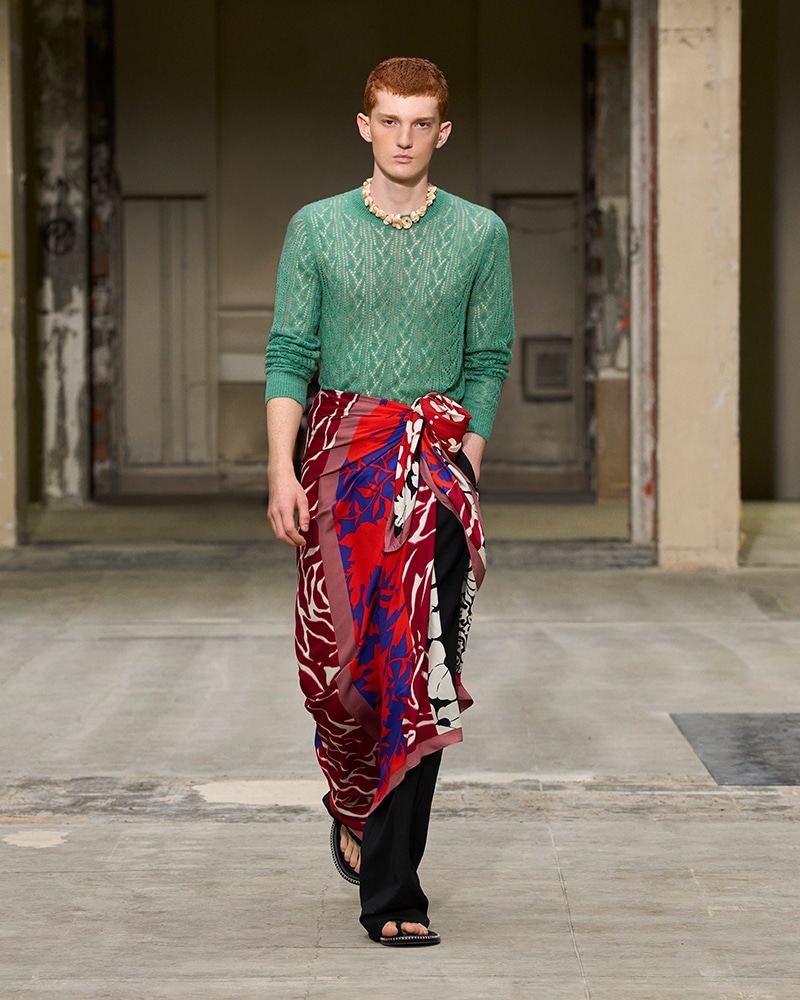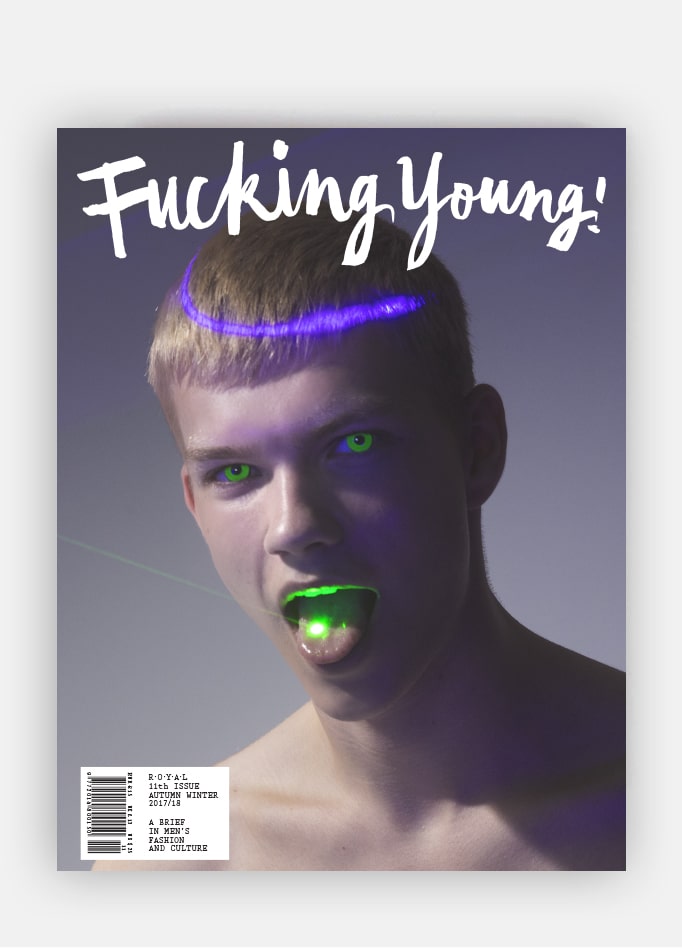3 LVMH Prize Nominated Menswear Designers You Need To Know
by Anna Barr
While there are twenty 2020 LVMH Prize short-listed designers of which roughly half are menswear and unisex, we got a chance to narrow in on three while visiting the showroom during Paris Fashion Week. I’ve been asking myself for the past few months if we really need more clothes in the world. When I asked several of the nominees, almost all admitted to asking themselves the same questions. Some pointed out that if they went down the path designing for others, they might be stuck just in the creative team or atelier, without being able to have any control of the supply chain. Finding their own label allows them the control to source ethically, know who are making the pieces and their pay.
The thing is, clothes help us to find or explore our identity, eventually we find ourselves at the point when we aren’t searching for that anymore and clothes are then more about updating and replacing. This is the real fashion cycle, not seasons and trends. Many of the designers focused on solutions for the present and future alongside their narrative. I hate the over-used term the “future of fashion”, but for once, this was it. I got to learn about a future where former sex workers, refugees, and other people running out of hope, were finding themselves in ateliers learning how to sew, cut patterns, weave and other craftsmanship skills where the designers took the time to train them, many times just starting with the most basic pieces.
While the final eight nominees will be announced soon, voted on by a panel of experts including Edward Enninful, Michel Gaubert, Jefferson Hack,and Adrian Joffe among others. Here are three of the LVMH Prize-nominated menswear designers that you need to know, as you will be seeing their names in the near future!
Ahluwalia by Priya Ahluwalia


While British born and based, Ahluwalia draws upon her dual Indian-Nigerian heritage with London roots. In her photography book Sweet Lassi we see stockpiles of textile waste. She explores different techniques to give new life to deadstock fabrics and vintage. Each piece in essence is a one of a kind but not intimidating in cut and style, after all, clothes are meant to be worn. Additionally, she works with factories that applaud artisanal work and foster safe, fair and well-trained environments including Sewa Delhi, an embroidery social enterprise that works with rural women, and positions them into fairly paid and flexible employment. You could say that it is couture streetwear without couture prices. There has been talk of streetwear going out of trend, but I think that is disposable hyped streetwear. Ahluwalia is taking it to the next level! The brand is already stocked at Browns, so that’s a big boost in confidence.
Casablanca by Charaf Tajer

Chances are you probably don’t know that you already know Tajer. The Parisian born designer with Moroccan descent has worked with streetwear brand Pigalle, creative collective Pain Au ChoKolat, collaborated on a season with Off-White and has consulted for Supreme. But Casablanca is a far cry from his past, focusing on more elegant elements of menswear and aiming for long-lasting legacy up there with French iconic luxury brands, but with a comfortable twist, self-confidence and Made in Morocco. Loving yourself and body-positivity is something that the fashion world has been a bit slow to embrace, but Casablanca has been sending out infectious positive vibes since its debut in 2018!
Nicholas Daley


We have been seeing a lot of Daley recently, and just interviewed him last month! His collections reflect on multiculturalism within the British identity while splitting production between the UK and Japan. His pieces have been very popular in Japan and shows that such a personal story can be accessible. His bespoke textiles and fabric finishes saw him nominated for the International Woolmark Global Prize in 2019. He has collaborated with Fred Perry and Adidas and is stocked at notable shops such as Dover Street Market.
Photos by Louise Reinke
take me right back to the middle of field…
Heliot Emil Fall/Winter 2020
SLⱯY, unveiled during Berlin Fashion Week, takes the ancient tale of Saint George and the Dragon and flips it into a meditation on modern battles.
Change isn’t always about moving forward, but sometimes, it’s about holding on. For their Spring/Summer 2026 collection, Milieuschutz, Richert Beil explores exactly that tension.
Inspired by the hidden love stories of novels like Maurice, Swimming in the Dark, and Young Mungo, the collection moves through three emotional stages of queer coming-of-age: concealment, self-acceptance, and the bittersweet weight of memory.
Through its new CGI campaign, “Beyond Real, Beyond Now,” and a community-driven approach, REVERSIBLE is bridging the gap between inspiration and accessibility.
Eugenio Elverdin photographed by Lucas Ricci and styled by Gaston Olmos, in exclusive for Fucking Young! Online.
There’s a particular kind of freedom that comes with movement, and AMBUSH’s Spring/Summer 2026 collection, “Tribe on the Move,” captures that feeling.
Louis Vuitton’s latest travel campaign takes viewers on a visual journey through China, reimagining travel as an experience rather than just a destination.
Paris Fashion Week witnessed Steven Passaro’s Moonlit Lover Spring/Summer 2026 collection, an exemplar of the aftermath of love encountered after midnight and gone before sunrise.
Because home should never be denied to anyone. In a world where home shouldn’t be a privilege but a right, artist and activist Charlie Smits is stepping up. Smits has teamed up with Fundación… »
Simon Porte Jacquemus has fulfilled his dream, and in the process, he continues to invite us to dream with him.
We checked in with Takuya Morikawa to talk process, evolution, and the foundation in the essence of creation.
Berlin Fashion Week saw the return of Milk of Lime, fresh off their Berlin Contemporary win, with their Spring/Summer 2026 collection, CHIME.
Craig Green’s Spring/Summer 2026 collection feels like a half-remembered dream with shapes you recognize, but shifted just enough to make you look twice.
Photographer Denzil Jacobs presents a selection of eclectic looks photographed on the streets of Paris during Men’s Paris Fashion Week, outside Amiri, Rick Owens, 3.Paradis, Kidsuper and more, exclusively for Fucking Young!
Ikko Ohira photographed by Luis May and styled by Timothée Geny La Rocca, in exclusive for Fucking Young! Online.
At Paris Men’s Fashion Week, NAMESAKE’s Spring/Summer 2026 collection, INNERCHILD, didn’t just show clothes but also memories.
Designer Andrea Pompilio maps a wardrobe for modern nomads, one that looks collected rather than curated.
Louis Vuitton has always been about journeys, both literal and imaginative.
VIKTORANISIMOV chose an unlikely stage for its first Berlin Fashion Week presentation: a former telecommunications bunker, now The Feuerle Collection museum.
After the show, designer Feng Chen Wang caught up with us, to open up about the emotion behind this collection, and the brand’s evolving identity – accompanied by backstage moments captured by Leiya Wang.
Take a look at DOUBLET’s Spring/Summer 2026 backstage, captured by the lens of Rita Castel-Branco during Paris Fashion Week, in exclusive for Fucking Young!
Take a look at KIDSUPER’s Spring/Summer 2026 backstage, captured by the lens of Tiago Pestana during Paris Fashion Week, in exclusive for Fucking Young!
For Camiel Fortgens’ SS26, models walked the actual streets of Paris during Fashion Week, portable speakers in hand, each playing a fragment of the show’s soundtrack.
Singer-songwriter HUMBE is Mexico’s breakout pop star, leading us into a new era of sentimental pop.
Created with artist Samuel de Sabóia, the lineup weaves together regeneration, spirituality, and a question: What does the future of fashion look like?
ZIGGY CHEN’s PRITRIKE doesn’t shout. It hums like the low, steady pulse of rain on summer earth.
For their SS26 show, the adidas and Yohji Yamamoto collaboration traded the standard runway for something more visceral: a four-act performance directed by choreographer Kiani Del Valle.
After showing off-calendar for two seasons in a presentation format, the 2023 LVMH Prize-nominated designer Kartik Kumra is now the first Indian designer to be on the official menswear calendar.
SANKUANZ’s Spring/Summer 2026 collection finds its heartbeat in Tara, the Tibetan Buddhist goddess who exists between two worlds, both enlightened and earthly.
Creative director Julian Klausner builds his first men’s collection for the house like a love letter to contradictions.





